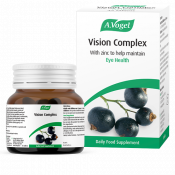An introduction to glaucoma
Glaucoma is a condition where pressure builds up inside the eye as a result of poor drainage of fluid. This increasing pressure can damage the optic nerve which can affect sight.
It is a fairly common condition, affecting 2% of over 40s in the UK. Often it is so slow-progressing that people do not realise they have it for some time, and attribute any accompanying deterioration of vision to simply ‘getting older’. If left untreated it can take anywhere between 25 and 70 years to cause severe sight impairment (except in the case of acute glaucoma, which can rapidly deteriorate vision).
It is a serious condition – even mild forms will eventually begin to affect sight if left untreated. Even with treatment, vision can still slowly deteriorate.
What are the causes of glaucoma?
The eye is continuously producing a fluid called aqueous humour. This fluid is usually drained via the front of the eye through channels in the cornea and iris. If these channels become blocked or partially obstructed, this fluid cannot drain and pressure begins to build as the eye continues to make more fluid.
As this pressure increases, it begins to cause damage to the optic nerve. This nerve carries signals from the eye to the brain, so if this is damaged it prevents these signals from reaching the brain. This is what causes deterioration of vision in glaucoma patients.
The exact cause of this drainage problem depends on the type of glaucoma from which you are suffering.
What types of glaucoma are there?
There are a few different types of glaucoma with different causes:
- Open-angle (chronic) glaucoma – this is the most common type of glaucoma. Fluid usually drains out of the front of the eye through a spongy mesh, but if this mesh becomes blocked then fluid drains too slowly and pressure builds up
- Angle closure (acute) glaucoma – this is a sudden, painful increase in pressure, caused when the space between the iris and cornea narrows, meaning the drainage of fluid becomes completely blocked by the iris. This is a medical emergency that requires immediate medical treatment
- Congenital glaucoma – this is when a baby is born with glaucoma, usually because of a defect in their eye
- Secondary glaucoma – this results from another eye condition such as cataracts or a tumour. Sometimes medications such as corticosteroids or eye surgeries can cause glaucoma
- Normal tension glaucoma – this is when the optic nerve is damaged without an increase in pressure in the eye. The exact cause of this is still not known.
What are the symptoms of glaucoma?
The symptoms of glaucoma really depend on what type of glaucoma you are suffering from.
Open-angle glaucoma rarely has any noticeable symptoms because it develops so slowly. Vision deteriorates very slowly so is often not noticeable, particularly as it is the peripheral vision that is affected first. It is usually only when this loss of vision works its way inwards, creating what is known as ‘tunnel vision’, that most people realise something is wrong.
Acute-angle glaucoma, on the other hand, has a number of distinct symptoms because it develops very rapidly and severely. These symptoms include:
- Intense pain
- Redness in the eye
- Headache
- Nausea
- Tenderness around the eye
- Seeing halos or rings around lights
- Misty or blurred vision
- Rapid loss of vision in one or both eyes.
Congenital glaucoma found in babies tends to have a different set of symptoms:
- Larger eyes due to the high pressure in the eye
- Sensitivity to light
- Eyes may appear cloudy
- Watering eyes
- A squint.
What are the risk factors?
There are a number of factors that make you more susceptible to developing glaucoma. These include:
- Age – people over the age of 40 are most at risk of developing glaucoma, and this risk increases with age
- Ethnicity – people of African or Asian descent have a significantly increased chance of developing glaucoma
- Gender – women are three times as likely to develop acute glaucoma than men
- Suffering from other conditions such as diabetes, high blood pressure or sickle cell anaemia
- Using corticosteroids for an extended period of time, particularly in eye drop form
- A family history of glaucoma
- Having had other eye problems, including inflammation, an injury or eye surgery.
How is glaucoma diagnosed?
Glaucoma can be diagnosed in a number of ways. To ensure early detection, you should get regular eye checks every two years, or more frequently if you think you may be susceptible to glaucoma, for example if you have a relative with the condition.
You can receive a free NHS-funded eye test or check-up if: you are 40 or over and have a close relative (parent, sibling or child) who has been diagnosed with the condition; are aged 60 or over; you have been advised by an optician that you are at risk of developing glaucoma or have already been diagnosed with glaucoma; or if you’ve been diagnosed with diabetes.
There are a few tests for glaucoma, including:
- Eye pressure test (tonometry). This uses an instrument called a tonometer to measure the pressure inside your eye
- Measuring central corneal thickness, as the thickness of the cornea is thought to play a role in the development of glaucoma
- Gonioscopy – this is an examination of the outer edges of the eye to determine if the channels by which fluid should drain from the eye are blocked
- Visual field test – this test checks for any gaps in your field of vision. You will be shown a sequence of dots and asked which ones you can see
- Optic nerve damage – this test uses drops to widen the pupils and then a slit lamp to examine any damage done to the optic nerve.
Conventional treatment
There is no cure for glaucoma, and any damage found on the optic nerve cannot be undone. However, there are several treatment options for controlling the condition and preventing vision loss.
There are a number of prescription eye drops available for glaucoma. These include:
- Prostaglandins. These increase the amount of fluid that drains from the eye to reduce pressure. Unfortunately, there are a few side effects, which include reddening or stinging eyes, dry eyes, changes to eye colour and blurred vision
- Beta blockers. These reduce the production of fluid in your eye to help lower pressure in the eye. Again, this kind of medication has a number of side effects, including difficulty breathing, slowed heart rate, lower blood pressure and fatigue
- Alpha-adrenergic agonists. These both decrease the production of fluid and increase the drainage of fluid. Side effects of this drug include irregular heart rate, high blood pressure, fatigue, and red, swollen or itchy eyes
- Miotic or cholinergic agents. These improve drainage from the eye. The side effects of this medication include narrowed pupils and blurred vision.
There are also a number of surgical options for glaucoma. Naturally, this kind of treatment is higher risk than medication. They can cause inflammation, eye redness, bleeding, or affected vision. In some cases, surgery can increase your chances of developing cataracts. The surgeries available for glaucoma include:
- Laser treatment – this can be used to open up blockages in the spongy mesh of the eye through which fluid drains
- Filtering surgery – also known as trabeculectomy, this is the most common type of surgery and includes removing part of the mesh under local anaesthetic
- Aqueous shunt implant – this involves inserting a small tube into the eye to drain fluid.
What natural treatments and herbal remedies are there?
Glaucoma is a serious condition, so we recommend consulting your doctor about your treatment options, because if not properly treated it can cause severe vision loss.
Natural treatments will not cure your glaucoma, but there are a number of measures you can take to try to control the pressure in your eyes and promote good eye health. These include:
- Improving your diet – alongside a healthy, balanced diet, you should ensure that your diet contains all the essential vitamins, minerals and nutrients that your eyes need. Have a look at our article on the good foods for eye health, to help you adjust your diet
- Reduce your caffeine intake – high levels of caffeine are thought to increase eye pressure
- Drink water in small amounts throughout the day, rather than a lot all at once. This will help prevent temporary spikes in eye pressure
- Keep your head elevated while you sleep to make it easier for fluids to drain from the eyes – a wedge-shaped pillow can be good for this.
If you find that the medication prescribed for your glaucoma by your doctor is causing dry or irritated eyes, try the A.Vogel Eye Drops. These drops contain the herb Euphrasia which has been used to treat eye problems since the 14th century, earning its alternative name, Eyebright. These drops help to relieve dry, irritated and tired eyes.





 Looking for help to ease those dry, tired and irritated eyes?
Looking for help to ease those dry, tired and irritated eyes?

